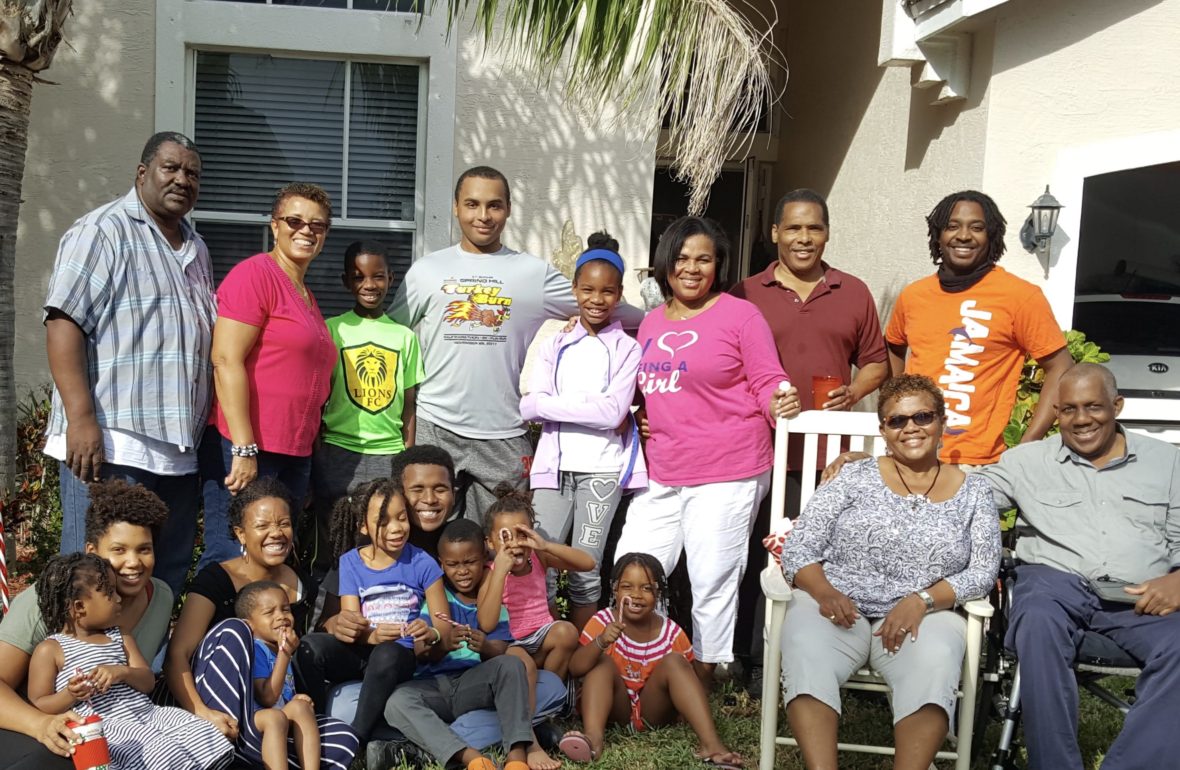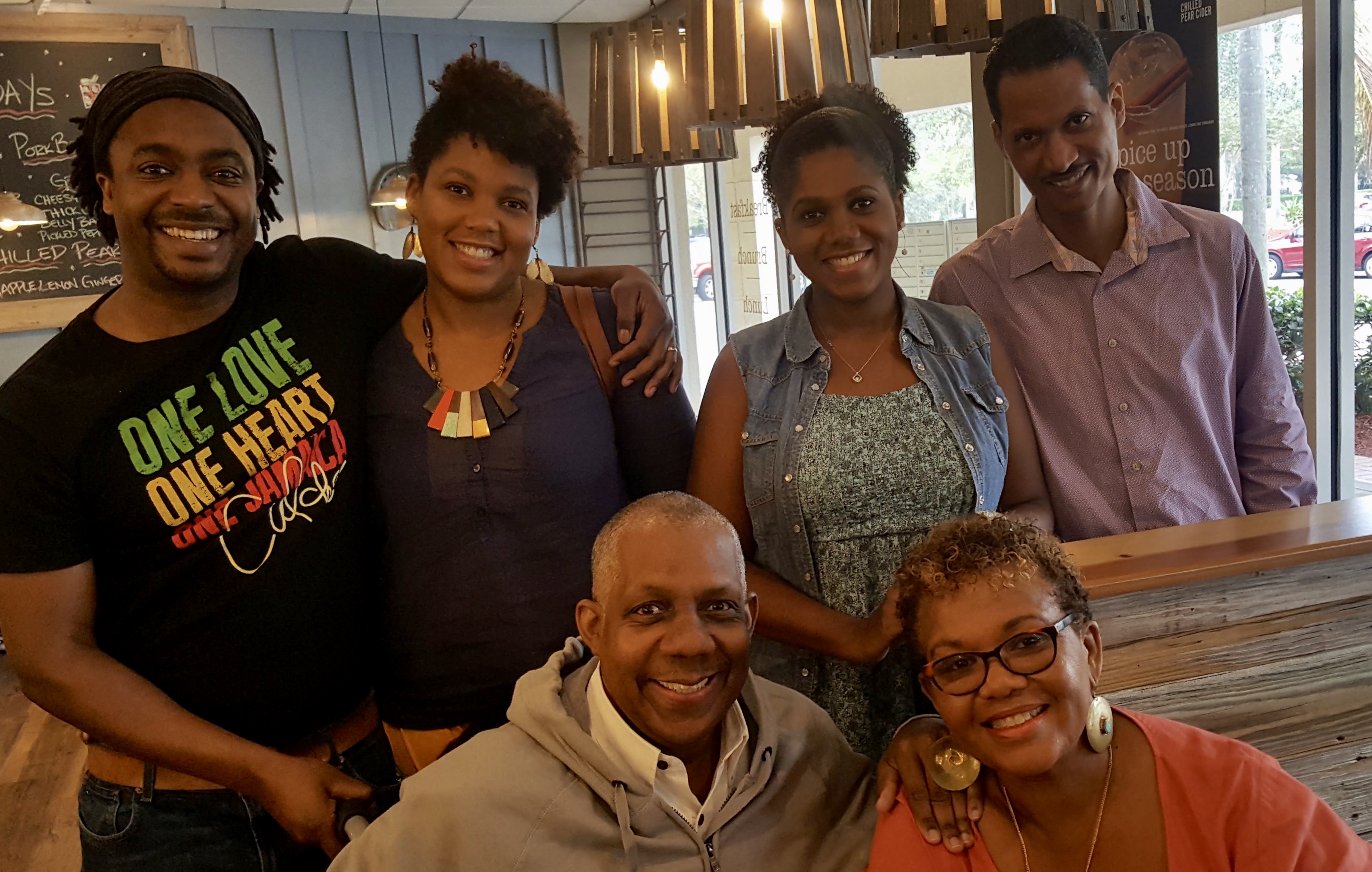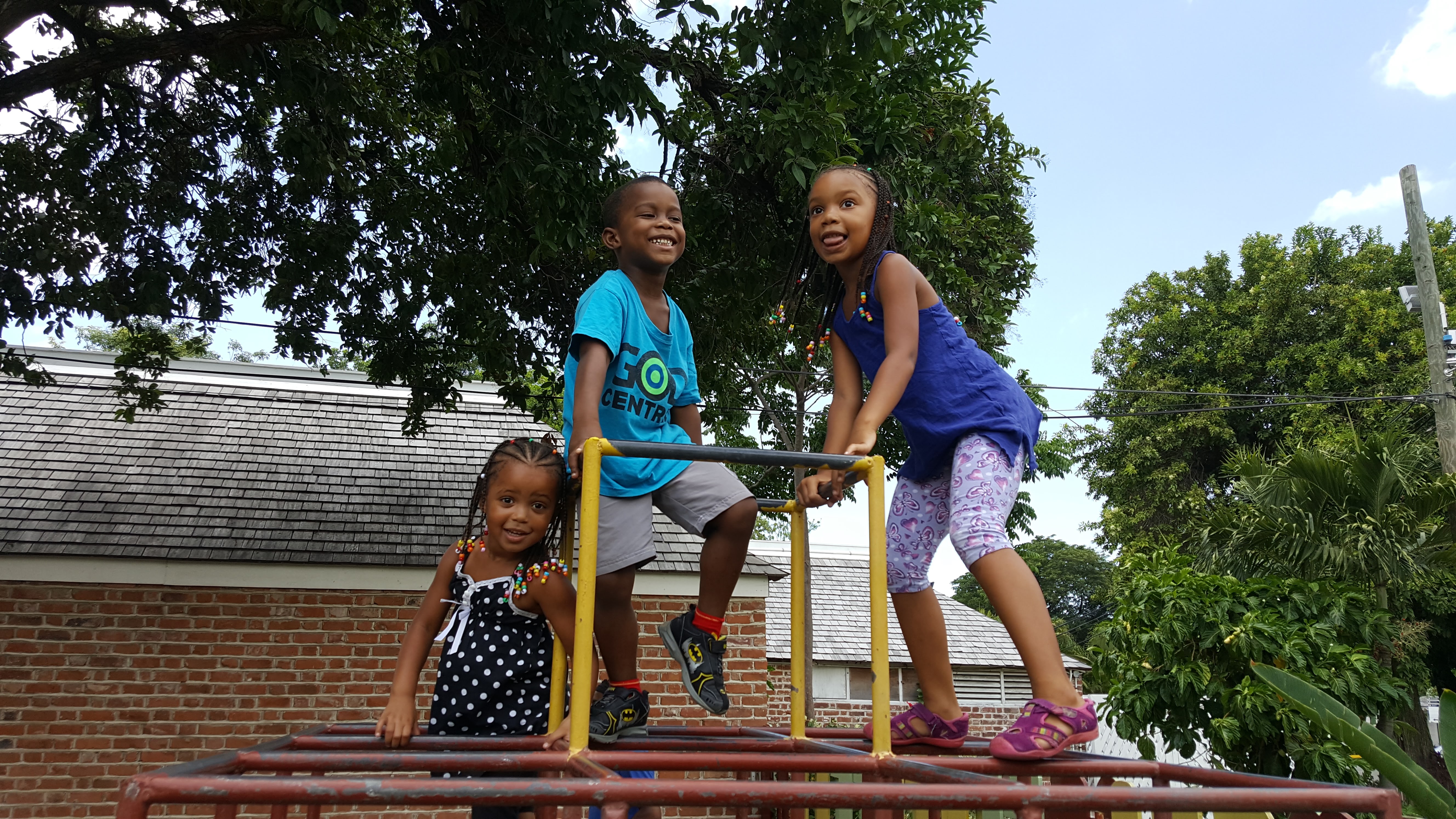
3 Tips from a Forerunner
As a young black woman who often feels burdened by the many crises facing our society family gatherings are a welcome refreshment: When my relatives get together, we often take some time to reflect on the great blessing of being raised in a multi-generational Christian home. We tell the story of my grandfather, how he founded ten churches and pastored thirteen in rural Jamaica, traveling to each one on a weekly rotation so he could ensure growth and health in each of them. We venerate my grandmother’s passion for prayer, and at least one aunt will recall her singing an old hymn in the wee hours of the morning, ‘tarrying’ over the names of community members in need of divine help. We’ll recount with gratitude members of the family who’ve made commitments or recommitments in the past year to walking Christ’s narrow path. It’s an all-around good time that leaves us feeling spiritually high.

Hanging out with our spiritual forerunners!
But at some point amid the happiness, the topic of finances will come up… and the older generation will heave a collective sigh. The truth is, despite the great way the older generations have cultivated the family’s spiritual capital (and I know- it’s the most important one!), Caribbean families often struggle with building financial capital. Even those of us that are fortunate enough to go to college accept debt and financial struggle as an inevitable reality. In developing countries, we watch helplessly while our economy limps along and the value of the currency declines. In my family of origin, we find ways to eke out funds to gather for holidays, weddings, funerals, and other significant family events. (We’re really big on building relational equity… capital #2!) But again, when it comes to financial wisdom, the older generation prays that we younger folks will somehow get the financial breakthrough many of them never did.
So that’s the backdrop. At a recent family gathering, my older cousin and I exchanged thoughts on this perennial issue: How can we break the cycle and start building financial equity for our families? How do we make changes for our kids while also prioritizing helping the older generation when they have physical and fiscal needs? And do we dare try to “teach” our parents’ generation what it might mean to break the cycle in their lifetime? (THAT is a biggie!)
My cousin and I, along with our husbands, are going to have to be Financial Abrahams and Sarahs, just as our parents and their parents have been Spiritual Abrahams and Sarahs. We’re going to have to forge new pathways and establish a new family identity around money. We’re going to have to be entrepreneurs, laying new foundations that will help expand the spiritual territory that’s been heroically plowed by the generations before ours. This kind of work won’t be easy: we’ll be pushing against generations of bad belief and bad habits, but we will honor our forebears (and shepherd our descendants) as we retake ground that God never meant for us to lose. We’ll repent of broken ways and establish paths to redeemed ones. Come on! This is a sermon here!

The children… we do it for the children.
Anyway… as my cousin and I talked, we recognized we wouldn’t solve these big, complicated issues in one go… but we could start. We decided to proceed by implementing a few of the lessons we’ve picked up so far:
- Shun the ‘entitlement mentality’: This one was a real struggle for me. After all, I have a degree from a fancy pants, Ivy League university! And a graduate degree in “doing good things” (read: Nonprofit and NGO Leadership ) from another fancy pants Ivy! Surely, this entitles me to own a late model car and a nicer home, yes? …The hubby and I had to quickly disabuse ourselves of that (false) notion… First of all, shortly after getting married, we started to realize that our peers who were buying homes often had some invisible hands at work: a deep-pocketed dad back home would often be providing an interest-free loan for the down payment. (He didn’t expect the ‘loan’ back if they weren’t able to sell the house for a profit.) Also, Grandma would often bequeath her inheritance while still alive so she could witness her grandchildren enjoy the fruit of her hard labor. In a few cases, even, parents would simply gift the down payment for a home to the kids as a wedding gift. This was definitely not our situation! So why did I assume I could have what they had just because we went to school together? I’ll tell you: that entitlement mentality we’ve got to shed! I’m so grateful for my community of friends who were honest enough to share some of these invisible factors with me, because we’d started to wonder if we were just duds: Why was everyone else leaving us in the dust?! The fact is, none of us were entitled, really–but some of us had a big hand up. I realized I wanted to be in a position to give my kids a hand up in the future… but it would take a while for me to get there.
- Consumer debt is the devil: No, really. When we first got married, we had a couple thousand dollars in consumer debt from college expenses that weren’t covered by financial aid (a laptop here, some engineering text books there, and food. LOTS of food). We honestly assumed that everyone carried some measure of debt (not true! Some people live below their means!), so it was no big deal, right? We could make our rent and car payment, so who cared, right? Right?? Wrong! The credit card carried a high interest rate (of course), so we were throwing away money each month. Same for the car payment. Thankfully, we had good credit, so once I woke up to our predicament, I called up the bank and negotiated our interest rate down. Then we started aggressively paying that sucker off. Tax return? Stick it on the card. Year end bonus? Pay down the card. We were able to nix the sum fairly quickly, but it was tough, and required a change of mind.
- People may not get it. And that’s okay! Once we started identifying that lots of our entitlement is informed by what our society implicitly communicates we should care about, versus what we actually need (or even really want, if we’re honest with ourselves), we started to take back the reins on how we spent our resources. For our family, this meant reducing spending on clothing and furniture, but putting more resources into getting away as a couple to strategically think through our family’s goals (kinda like the Family Goals Summit). This was a big deal because we like to travel way more than we enjoy a new set of suits. But we have friends who prioritize an annual ‘wardrobe’ budget because dressing well is a high priority for them. For us, ‘spending where we care’ also meant choosing to live in a town with cheaper real estate so that we could enjoy some ethnic and economic diversity in our public schools—a high priority for us at the moment. We also started practicing holding our resources with an open hand: When we felt convicted to help friends pay utility bills or rent, we’ve had the flexibility to do so quickly because we’d already put ourselves in a mindset that sees our resources as God’s in the first place (that’s stewardship). Some who watch us from the outside might be confused about why we haven’t yet bought our ‘dream house’ or moved to higher end areas, but that doesn’t align with our priorities at the moment.
Caveat 1: This is not always easy, I admit! I often fall prey to the constant marketing and societal pressures to spend more on myself than I should. The entitlement trap is a daily struggle, and I’m still learning.
Caveat 2: Priorities can change. And that’s okay! We’ve known folks whose priorities changed based on their family’s needs – the diagnosis of a child with special needs, for example. So, you’re allowed to flex your plan as needs dictate—this isn’t carved in stone.
My cousin and I have decided that we ARE going to be pioneers of the redemptive financial work God is about in our family. And yes, we’ll have to shun that entitlement mentality, avoid consumer debt like the plague, and deal with those who don’t understand. But we know that where our family is going is worth it. And, like those who’ve gone before me, I’m honored to help pave the way.
Note from the Editor: Mikaela Levons and her husband Jaquan are longtime friends of the Wallet and brilliant family builders. They bring a whole host of newness to this site and we’re hopeful that we’ll continue to hear from them both around here. In fact, we’ve already got a second installment in the pipe! So please, hit the comments and let us know what questions you have for the Levons family, there’s a good chance your input will drive future episodes.







Thank you for this post – my wife and I have been having similar conversations about flipping our family’s financial script for the Kingdom, so this is needed encouragement and advice!
I believe this blog was well written with conversational language, but it was also very insightful! It’s definitely challenging the status quo.
All hail Mikaela! Great stuff here- please keep it coming!